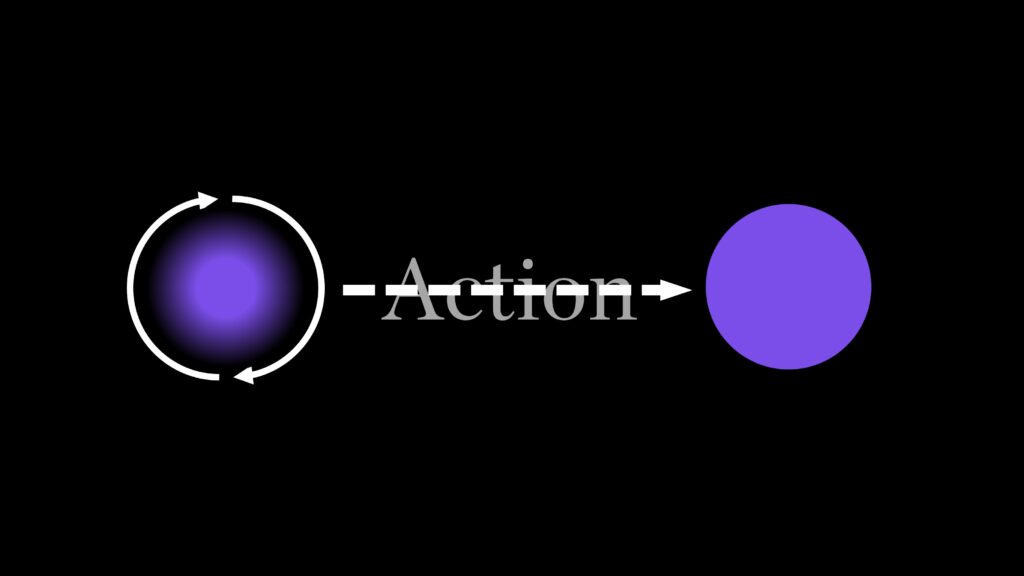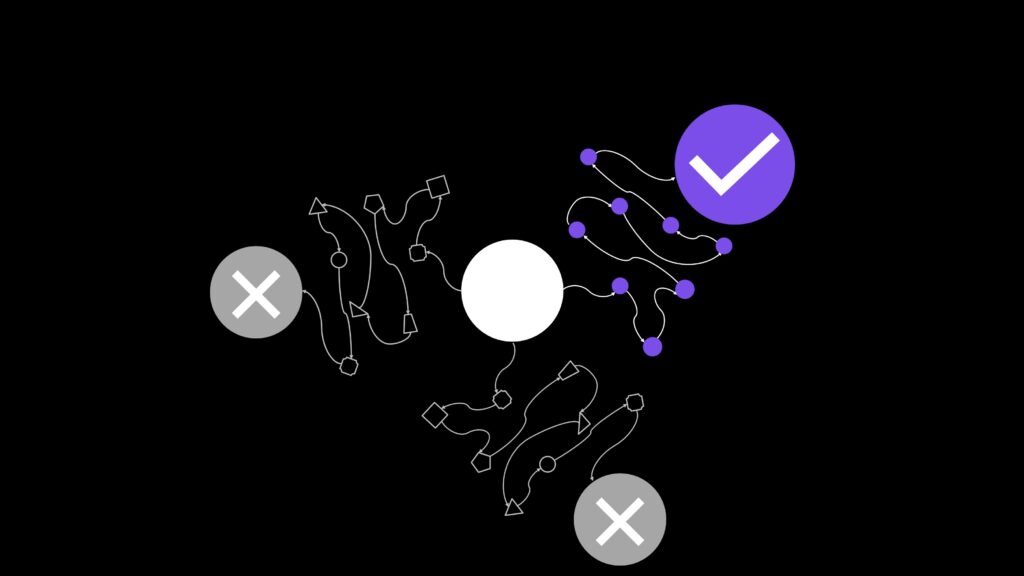Article last updated on January 19, 2023
We all have skills and talents that make us unique, but it can be easy to overlook or underestimate our own capabilities.
If you ask yourself, “What are things I am good at?” then here you will find out what your strengths and talents are.
Getting to know your strengths and weaknesses can help you feel better about yourself and open doors to opportunities for growth, both in your career and in your personal life.

While some of us might not realize our own talents, others are too humble to bring attention to them. If this sounds like you, let this article be your reassurance!
From creative hobbies to impressive life skills, here’s a list of things that most people don’t know they’re actually really good at doing!
Take some time to explore these hidden talents and discover how they can benefit your life today – you may just surprise yourself!
How to Identify Your Strengths and Talents
There are many ways to identify your natural strengths and talents, but the most important thing is to be honest with yourself.
Here are some of the best and easiest ways to find out what your hidden talents are:
Writing down a list of things you enjoy doing
Writing down a list of things you enjoy doing is one of the best ways to identify your strengths and talents.
Start by making a list of activities that you find enjoyable, such as playing an instrument, painting, or cooking.
Then, think about how these activities make you feel – do they bring out your creativity? Do they help you relax? Do they give you a sense of accomplishment?
When you write down a list of activities that you enjoy, it all of a sudden becomes easier to identify your strengths and talents.
Reflecting on feedback you’ve received from others
Another great way to find your strengths and talents is to think about the feedback you’ve gotten from other people.
Think back to times when someone has praised you for a job well done or given you constructive criticism.
What were they praising you for? What did they suggest that you could do better?
By reflecting on the feedback that you’ve received from others, it can help you identify your strengths and weaknesses.
Taking stock of times when you felt successful
Think back to moments when you felt proud of yourself or accomplished something that you set out to do.
What were the circumstances? What did you do differently than usual?
Taking a deep breath and reflecting on these moments can help you gain insight into your strengths and talents.
There is a reason why you felt successful in those moments – it’s likely because you were using your strengths and talents to their fullest potential.
Those feelings will lead you to even greater success in the future.
Thinking about tasks that come most naturally or easily to you

Think back to times when you have found yourself completing a task with ease, or when you felt like the task was almost effortless.
What were the tasks? What made them so easy for you?
By reflecting on the how you manage to get attention from people, it can help you identify your strengths and talents that have earned you recognition and praise.
So, when you write down a list of things you enjoy doing, reflect on feedback you’ve received from others, take stock of times when you felt successful, and think about tasks that come most naturally or easily to you, it will be easier for you to identify your strengths and talents.
Once you have identified your strengths and talents, the next step is to use them to your advantage.
What Are My Core Strengths?

Once you have identified your strengths and talents, it is important to identify your core strengths. Your core strengths are the skills that you possess that make you unique and set you apart from others.
To identify your core strengths, start by making a list of all the skills that you have acquired throughout your life that are above and beyond what an average person would possess.
This could be anything from technical skills like coding or design to social skills like talking to people and figuring out how to solve problems.
Once you have made a list of your skills, narrow it down to the ones that you feel are your strongest. These are the skills that come most naturally to you and that you enjoy using.
Once you have identified your core strengths, it is important to make a conscious effort to develop them further. This could include taking classes or workshops related to your core strengths, or even just reading books and articles to stay up-to-date on the latest trends.
Focusing on developing your core strengths will help you use them to their fullest potential and be more successful in the future.
Now, your core strengths lie in one of the following areas:
- Analytical skills
- Creative thinking
- Organization skills
- Empathy and communication
Let’s break down these core strengths a bit.
Analytical skills or problem-solving aptitude
Analytical skills or problem-solving aptitude are core strengths that involve the ability to identify and analyze problems, come up with solutions, and make decisions based on data.
People with strong analytical skills can quickly find patterns and trends in data and use this information to come up with creative solutions.
It’s important to practice problem-solving skills like brainstorming, researching, and analyzing data if you want to improve your analytical skills.
Additionally, reading books about problem-solving strategies can help you hone your analytical skills. Finally, it is important to stay up to date on the latest trends in your field so that you can apply them when solving problems.
Creative thinking and expression
Creative thinking and expression are core strengths that involve the ability to think outside the box and come up with innovative solutions.
People who possess strong creative thinking skills can take existing ideas and use them in new ways, or create something entirely new.
It’s important to practice brainstorming techniques like mind mapping, freewriting, and sketching if you want to learn how to think creatively.
Additionally, reading books about creativity can help you hone your creative thinking skills. Finally, it is important to stay open-minded when looking for solutions and be willing to explore different possibilities.
Organization and planning
Organization and planning are core skills that involve being able to put tasks in order of importance, set goals, and make plans that work.
People who are good at planning and organizing can break down complicated tasks into steps they can handle, set deadlines for completing tasks, and stay on track to reach their goals.
It’s important to practice time management skills like setting deadlines, breaking down tasks into smaller steps, and making a daily schedule if you want to get better at organizing and planning.
Additionally, reading books about productivity can help you hone your organizational and planning skills. Finally, it is important to stay organized by keeping track of all your projects in one place so that you can easily access them when needed.
Empathy, communication, and teamwork
Empathy, communication, and teamwork are core strengths that involve the ability to understand and relate to other people.
People who possess strong empathy skills can put themselves in someone else’s shoes and see things from their perspective. This allows them to better communicate with others and work together effectively as a team.
It’s important to practice active listening techniques like repeating what you heard and asking open-ended questions to improve your ability to understand other people, talk to them, and work as a team.
Additionally, reading books about interpersonal relationships can help you hone your empathy skills. Finally, it is important to stay open-minded when communicating with others and be willing to compromise when needed.
Now that you have a better understanding of your core strengths, we need to combine them with your interests. Let’s check that now…
What Are My Interests?
Identifying your interests is an important step in discovering your strengths and talents. Your interests can help you identify which areas you are passionate about and where you may have a natural aptitude.

When exploring your interests, it is important to think broadly and consider activities that bring you joy, as well as topics that fascinate or intrigue you.
Additionally, it can be helpful to look for patterns in the things that interest you—for example, if you enjoy reading books about history, this could indicate an interest in research or writing.
Once you have identified your interests, it is important to take action on them by engaging in activities related to those interests. Let’s see some of the most common interests and how they relate to your life.
Artistic activities such as drawing, painting, writing, photography, etc.
Artistic activities can be great outlets for expressing yourself. People who possess strong artistic skills have the ability to create beautiful works of art that capture emotion and tell stories.
When you are naturally drawn to artistic activities, it is important to practice your skills and explore different mediums. Additionally, reading books about art history and technique can help you hone your artistic skills.
Researching topics or solving puzzles
Researching topics or solving puzzles can be a great way to tap into your analytical and problem-solving skills. People who are good at researching and solving puzzles can think critically and come up with creative answers.
Typically, when you are interested in researching topics or solving puzzles, it is important to practice your skills by reading books and articles related to the topic. Jobs that involve researching topics or solving puzzles can be great options for those who possess these skills.
Technical skills such as coding or engineering
People who possess strong technical skills have the ability to create and build things using technology. For technical skills like coding or engineering, you need to know a lot about complicated systems and processes and be able to think logically and solve problems.
To develop your technical skills, it is important to practice regularly by writing code or building projects. Finally, it is important to stay up-to-date on the latest technologies and trends in order to stay ahead of the curve.
Athletics or physical activities
Athletics or physical activities can be a great way to tap into your physical and mental strength. People who are good at sports can push their bodies to their limits and do amazing things with their strength, agility, and endurance.
If you are naturally good at sports or other physical activities, you should practice often to improve your skills.
Now that you know what your core strengths and interests are, it is important to take action on them. Because these are things you are good at. Let’s see how you can leverage your strengths and interests.
How Can I Leverage My Strengths & Interests?

Here are some tips for leveraging your strengths and interests:
- Find a mentor or coach who can help you develop your skills. A mentor or coach can provide valuable guidance and support as you work to hone your skills and reach your goals.
- Take classes or workshops related to your interests. Taking classes or workshops related to your interests can help you gain new knowledge and skills that will be beneficial in the long run.
- Network with people who share similar interests as you do. Networking with people who share your interests can lead to opportunities for collaboration, advice, and mentorship, all of which will help you grow.
- Participate in competitions or events related to your interests. Participating in competitions or events related to your interests can help you gain experience and recognition, as well as provide an opportunity to showcase your skills.
- Create a portfolio of your work that showcases your strengths and talents. Creating a portfolio of your work is a great way to demonstrate what you are capable of and show potential employers or clients what you have to offer.
- Utilize social media to promote your work and connect with potential employers or clients. Social media is a great way to get your work out there and connect with potential employers or clients who may be interested in what you have to offer.
- Take on freelance projects related to your interests. Taking on freelance projects related to your interests can help you gain experience, build up a portfolio of work, and make some extra money while doing something you enjoy.
- Find volunteer opportunities related to your interests. Volunteering is a great way to give back while also gaining valuable experience and making connections that could lead to future opportunities.
- Join professional organizations related to your interests. Joining professional organizations related to your interests can provide access to resources, networking opportunities, and mentorship that can help you grow.
By taking action on your strengths and interests, you can leverage them to reach your goals and achieve success. Identifying your strengths and talents is the first step in the process of leveraging them for success. With a little bit of effort and dedication, you can make the most of what you have to offer.
Examples of How to Put Your Strengths & Interests to Use
Putting your strengths and interests to use can be a great way to reach your goals and achieve success. Here are some examples of how you can put your strengths and interests to use:
- Use your creative skills to create art, design products, or write stories.
- Leverage your organizational skills to manage projects or coordinate events.
- Utilize your problem-solving abilities to develop solutions for complex issues.
- Put your communication skills to work by writing articles, giving presentations, or teaching classes.
- Tap into your analytical skills by conducting research or analyzing data.
- Use your leadership skills by becoming a manager or taking charge of a group project.
- Harness your technical skills to develop software, create websites, or build robots.
- Use your people skills to your advantage by networking with people in your field or helping other people.
- Use your entrepreneurial spirit to start a business or launch a new product.
- Put your marketing skills to use by creating campaigns or managing social media accounts.
- Utilize your financial acumen to manage investments or develop a budget.
- Use what you know about a certain topic by writing books, teaching classes, or giving advice to clients.
- Leverage your research skills to uncover new information or explore new ideas.
- Use your public speaking abilities to give presentations or host events.
- Tap into your artistic talents by creating music, designing graphics, or producing videos.
- Put your writing skills to work by creating content for websites or publishing articles.
- Utilize your knowledge of a foreign language to translate documents or teach classes.
- Leverage your organizational abilities to plan events, manage projects, or coordinate teams.
- Apply your problem-solving skills to develop innovative solutions for complex issues.
- Harness your analytical skills to conduct research, analyze data, or develop strategies.
Whatever you do, the work you are going to do needs to feel fulfilling and rewarding. Identifying your strengths and talents is the first step in the process of leveraging them for success. With a little bit of effort and dedication, you can make the most of what you have to offer.
Maybe you have some extra questions on this topic, so let’s check that out.
Frequently Asked Questions
Here are some of the most common questions people have about identifying the things they are good at.
What should I do now that I’ve discovered what I’m good at?
You can start by exploring different career paths or job opportunities that align with your skills and interests.
Consider taking classes or attending workshops to gain additional knowledge in a particular area. You can also look for volunteer opportunities or internships that will allow you to gain experience in a field of interest.
Finally, don’t be afraid to network with people in your industry and ask for advice on how to best leverage your strengths and talents.
What techniques can I use to efficiently evaluate my abilities?
Once you have identified the things you are good at, it is important to evaluate your abilities in order to determine how best to leverage them. Here are some techniques you can use to efficiently evaluate your abilities:
1. Take a skills assessment test. There are many online tests available that can help you identify and assess your strengths and weaknesses.
2. Ask for feedback from people who know you well. Friends, family members, colleagues, and mentors can provide valuable insight into your skills and talents.
3. Reflect on past successes and failures. Think about projects or tasks that you have completed in the past and consider what went well and what could have been improved upon.
4. Make a list of activities that make you feel energized and fulfilled. This will help you identify the things that you are passionate about and enjoy doing.
5. Set goals for yourself and track your progress. Setting goals can help you stay motivated and focused on achieving your desired outcomes.
Are there any tools or activities that can aid me in discovering what I’m good at?
Yes, you can take the 16 Personalities or the Myers-Briggs Type Indicator (MBTI) tests to gain insight into your personality type and how it relates to your strengths and weaknesses.
Additionally, there are many online resources that offer career assessments and advice on how to identify your skills and talents. You can also try activities such as journaling, meditation, or self-reflection to help you gain clarity about what you are good at.
How can I use my strengths and talents to benefit others?
You can volunteer your time and skills to help those in need or mentor someone who is just starting out in their career. You can also use your talents to create something that will bring joy or value to others, such as a piece of art or a blog post.
You can also use your strengths and talents to make the world a better place by advocating for causes you believe in or helping to spread awareness about important issues.
Finally, you can use your skills and knowledge to teach others what you know, whether through formal classes or informal conversations with friends and family.
Are there any potential pitfalls or challenges associated with honing my skills?
Yes, there are potential pitfalls and challenges associated with honing your skills. One of the most common is the fear of failure, which can prevent you from taking risks and trying new things.
Additionally, it can be difficult to stay motivated when learning a new skill or developing an existing one. It is important to set realistic goals and break them down into smaller tasks in order to keep yourself on track.
Finally, it is important to remember that honing your skills takes time and effort, so don’t expect immediate results. Be patient with yourself and celebrate small successes along the way.
Conclusion
In conclusion, identifying things you are good at and honing your strengths can be a rewarding experience. Taking the time to reflect on your skills, asking for feedback from those who know you well, and setting goals for yourself are all important steps in discovering what you’re good at.
There are many tools and activities that can help you identify your strengths and weaknesses.
Finally, once you have identified your skills and interests, use them to benefit others or make the world a better place. You can reach new levels of success and reach your full potential if you work hard and don’t give up.


